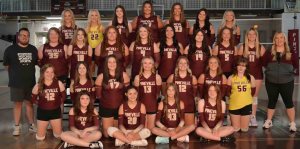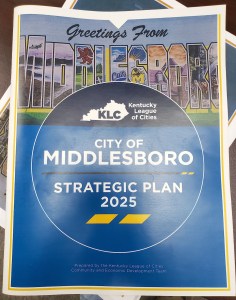The future of genetic testing
Published 12:01 pm Tuesday, December 3, 2024

- Ronald S. Dubin, M.D
By Dr. Ronald S. Dubin
Guest Columnist
For many decades the knowledge base of healthcare and how it has been delivered has not vastly changed. We still have our doctors appointments, get our prescriptions from the local pharmacist and take our medicine to make us healthier.
Trending
Cancers, when they develop, are staged according to which organ it is found in and classified as stage 1, 2, 3, or 4. We now put this information into our limited knowledge base and then start the chemotherapy, radiation therapy, and perhaps surgery and then we start killing the good cells as well as the bad cancer cells. And in many instances, these treatments are ineffectual. Why? Because our current knowledge base in medicine is reactionary, we respond only after the diagnosis is made, but not before. And in many cases, this is not good enough and patients will not be “cured.”
Even with chronic disease — diabetes, hypertension, and many heart and lung diseases, we only treat the symptoms but not the cause. We manage it, that’s all we can do. Sure, some diseases have been cured along with some cancers but too many problems are not being solved. Enter 2024, align our science with Artificial Intelligence, genomics, and significantly improved data gathering, and maybe we might finally get better “cures.” Medical advancements might just allow us to better understand more about cancers and how they form, and to who? and when? and why?
Through the now primitive science of gene sequencing, we might better understand more than just the staging and tissue types of cancers — but to get a jump on which patients might be more at risk of developing these cancers, making improved diagnostics which otherwise not be available as a screening tool to the majority of patients. Take for example Pancreatic cancer. Why is this cancer so aggressive and difficult to treat? Why is there very little hope for this diagnosis that is 99% fatal? Why is the cancer caught so late that surgery and chemotherapy is usually ineffective?
With genetic testing, which the price of this has come way down, people can learn that they might be at risk, but not necessarily diagnosing a cancer or disease. If a person tests positive, for the BRCA gene, for example, they are at more risk of developing certain types of cancers — including pancreatic cancer. Currently there is no screening available for pancreatic cancer except certain very detailed and expensive MRI scans only available in a limited number of hospitals. A patient with this gene — well that’s different. With this positive test, they can “skip the line” and be tested with more expensive diagnostics as well as being covered by their insurance.
The power of genetic testing today is good enough to sort these patients and get an earlier start on treatments. And there will be better tests in the future to connect a gene to a diagnosis. Genetics is the future. Period. Yes, some people might not want to know what their future might be, and I get that. It is scary and worrisome, but knowledge is critical especially if there are any risk factors in your family.
Unfortunately, my oldest brother was diagnosed with Pancreatic Cancer a year ago — and did test positive for the gene. I made the personal decision to get myself tested and fortunately I was negative for that gene. But my family does have risk factors for pancreatic cancer — all my grandparents came from Russia and Poland and are Ashkenazi Jews which is a known risk factor for pancreatic cancer. My first cousin died of this cancer and now my brother has it. So risk factors are important.
Trending
A budding and upcoming medical specialty is a Geneticist, who specializes in this field and can best guide you on your risk factors and choices you might have. Some insurances might even pay for this even without known risk factors. If I were to do my career over again, I might choose this field although being in practice for 37 years as an Orthopedic Surgeon in Kentucky has been a wonderful experience and very enriching.







